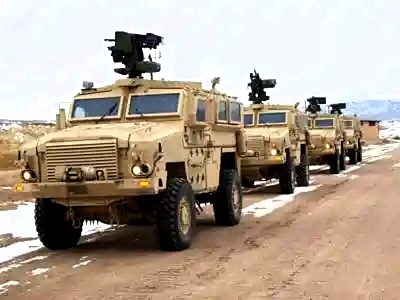Arms sales bureaucracy is delaying the export of South Africa’s weaponry worth R2.85 billion to customers across the world.
Militaries of Saudi Arabia, the United Arab Emirates, Turkey, and Poland would have to wait a little longer for their equipment pending when export permits are issued.
This was revealed by Ezra Jele, Head of Secretariat of the National Conventional Arms Control Committee, on 24 November during a briefing of the Joint Standing Committee on Defence (JSCD) on the NCACC’s third quarter report, defenceWeb reports.
According to defenceWeb, Ezra Jele said between July and September 2022, a total of 152 munitions export permits were authorised to 41 countries with a value of R818 million. A total of 43 export permits to 16 countries were approved, with a value of R137 million. For the third quarter of 2022, 82 import permits were authorised from 17 countries, amounting to R25 million.
Three permits for Saudi Arabia with business value of R505 million, three permits for the United Arab Emirates with value R1.45 billion, three permits for Turkey with value R20 million, and one permit for Poland with value of R893 million.
Moreso, nine export permits worth R37 million to Saudi Arabia, along with 59 permits worth R2.9 billion to the United Arab Emirates, and 18 permits worth R2 billion to Turkey.
The cause of the delays to approve Turkey and Poland’s permits may be linked to fears that the weaponry and components will be diverted to Ukraine.
Also, four German government-sponsored Puma M36 armoured ambulances for Burkina Faso, and body armour for Mali is also on hold.
These development highlights the damaging effects of the slow pace of export permit processing on the floundering South African defence industry.
The National Conventional Arms Control Committee (NCACC) which handles these process have been criticized by industry practitioners for being slow in their operating procedures.
Declining local defence budget is cited as one of the challenge delaying the NCACC from issuing new export permits.
A diplomatic row occurred in 2019, when the NCACC insisted that it be allowed to inspect customers’ facilities to verify compliance and that they must sign end user certificates (EUCs) in which they pledge not to sell their weapons on to third parties.
Saudi Arabia and the United Arab Emirates rejected the inspections demand, stating that they considered it a violation of their sovereignty, whilst Oman and Algeria also refused inspections and blocked arms imports.
Saudi Arabia and the United Arab Emirates accounts for at least a third of South Africa’s arms exports.
The issue was resolved two years later, but R2 billion in sales potential were aready lost.
In 2014 South Africa exported arms worth R2.98 billion, compared to R3.2 billion the year before and R10.6 billion in 2012, according to the NCACC’s 2014 annual report.







